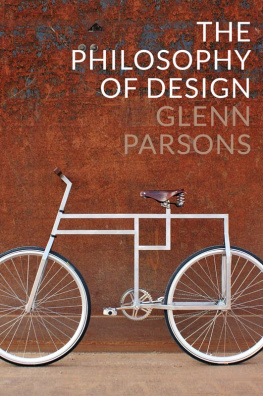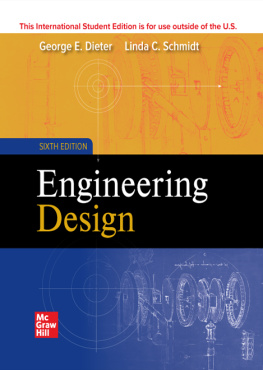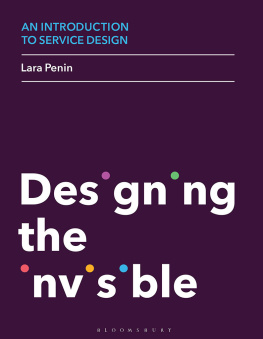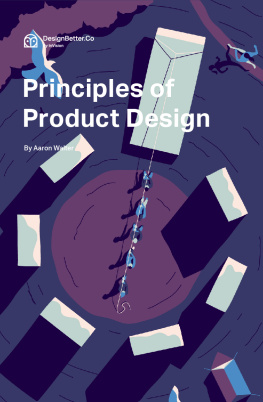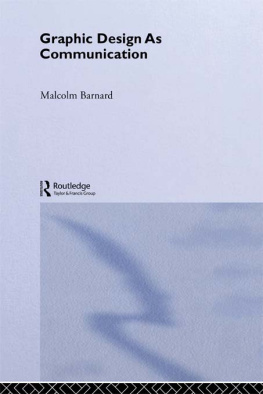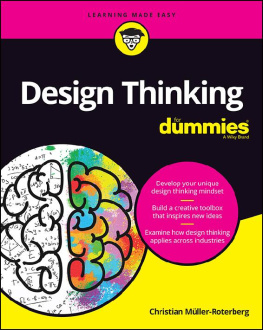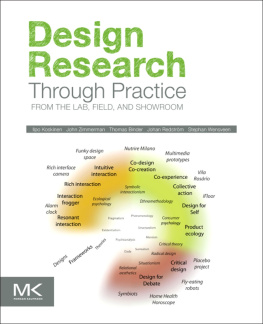Glenn Parsons - The Philosophy of Design
Here you can read online Glenn Parsons - The Philosophy of Design full text of the book (entire story) in english for free. Download pdf and epub, get meaning, cover and reviews about this ebook. year: 2015, publisher: Polity, genre: Art. Description of the work, (preface) as well as reviews are available. Best literature library LitArk.com created for fans of good reading and offers a wide selection of genres:
Romance novel
Science fiction
Adventure
Detective
Science
History
Home and family
Prose
Art
Politics
Computer
Non-fiction
Religion
Business
Children
Humor
Choose a favorite category and find really read worthwhile books. Enjoy immersion in the world of imagination, feel the emotions of the characters or learn something new for yourself, make an fascinating discovery.
- Book:The Philosophy of Design
- Author:
- Publisher:Polity
- Genre:
- Year:2015
- Rating:4 / 5
- Favourites:Add to favourites
- Your mark:
The Philosophy of Design: summary, description and annotation
We offer to read an annotation, description, summary or preface (depends on what the author of the book "The Philosophy of Design" wrote himself). If you haven't found the necessary information about the book — write in the comments, we will try to find it.
The Philosophy of Design is an introduction to the fundamental philosophical issues raised by the contemporary practice of design. The first book to systematically examine design from the perspective of contemporary philosophy, it offers a broad perspective, ranging across key philosophical areas such as aesthetics, epistemology, metaphysics and ethics.
The first part of the book explores central issues about the nature of design and its products, and the rationality of design methods. A central theme is that Modernist ideas, such as those offered by Loos and Gropius, provide important responses to these philosophical issues. In the second part of the book, these Modernist ideas serve as touchstones in the exploration of key issues for design, including: the place of aesthetics in design; design?s relation to personal expression; the meaning of function; and design?s relation to consumerism. The social responsibility of designers, and the impact of design practice on ethical reasoning are also discussed.
Written in an accessible style, The Philosophy of Design presents a new perspective on design and a provocative reassessment of the Modernist legacy. It will engage students and designers with current philosophical debates, helping them to bring into clearer focus the meaning of contemporary design, and its unique challenges and possibilities.
Glenn Parsons: author's other books
Who wrote The Philosophy of Design? Find out the surname, the name of the author of the book and a list of all author's works by series.

